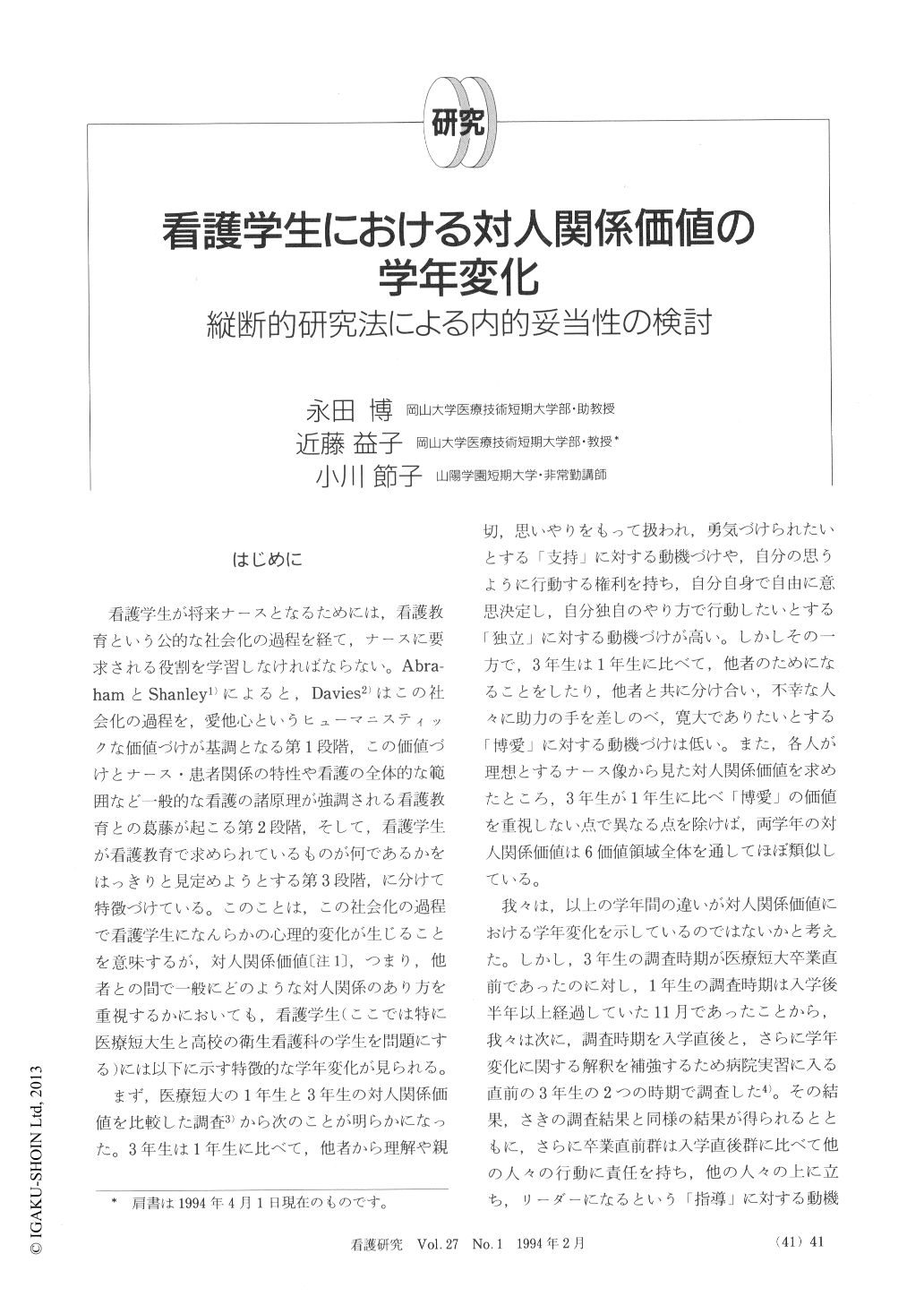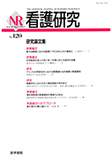Japanese
English
- 有料閲覧
- Abstract 文献概要
- 1ページ目 Look Inside
はじめに
看護学生が将来ナースとなるためには,看護教育という公的な社会化の過程を経て,ナースに要求される役割を学習しなければならない。AbrahamとShanley1)によると,Davies2)はこの社会化の過程を,愛他心というヒューマニスティックな価値づけが基調となる第1段階,この価値づけとナース・患者関係の特性や看護の全体的な範囲など一般的な看護の諸原理が強調される看護教育との葛藤が起こる第2段階,そして,看護学生が看護教育で求められているものが何であるかをはっきりと見定めようとする第3段階,に分けて特徴づけている。このことは,この社会化の過程で看護学生になんらかの心理的変化が生じることを意味するが,対人関係価値〔注1〕,つまり,他者との間で一般にどのような対人関係のあり方を重視するかにおいても,看護学生(ここでは特に医療短大生と高校の衛生看護科の学生を問題にする)には以下に示す特徴的な学年変化が見られる。
まず,医療短大の1年生と3年生の対人関係価値を比較した調査3)から次のことが明らかになった。3年生は1年生に比べて,他者から理解や親切,思いやりをもって扱われ,勇気づけられたいとする「支持」に対する動機づけや,自分の思うように行動する権利を持ち,自分自身で自由に意思決定し,自分独自のやり方で行動したいとする「独立」に対する動機づけが高い。
Our cross-sectional studies of interpersonal values in female student nurses showed that (1) third graders attached more importance to the values of Support and Independence and less to those of Benevolence and Leadership than did first graders, and (2) the discrepancy between the ratings of what they were and those of what their ideal nurses were was greater in the third than in the first graders. We interpreted these differences between the two graders as indicating a developmental change brought about during the three years.
This study examined the internal validity of this interpretation through the use of a longitudinal method. The KG-SIV (Kikuchi-Gordon Survey of Interpersonal Values) was administered twice to 85 female student nurses : immediately after entering their nursing schools and immediately before finishing them, with a testing interval of approximately three years. For each testing, subjects were asked to rate what they were and then what their ideal nurses were.

Copyright © 1994, Igaku-Shoin Ltd. All rights reserved.


